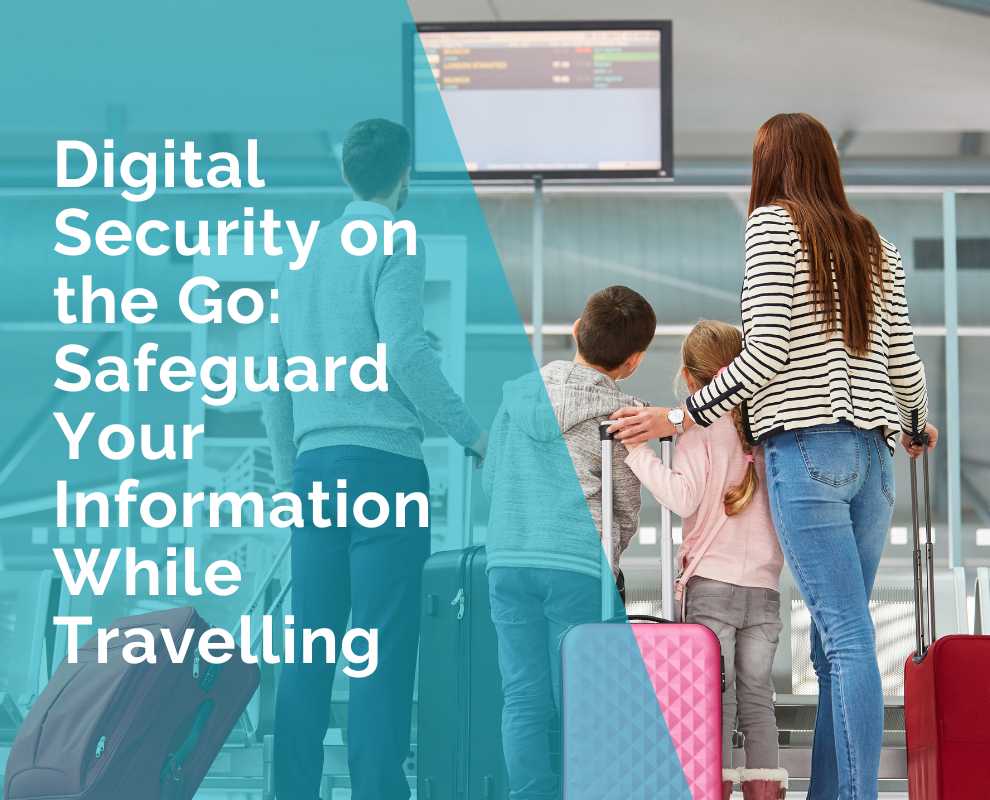Unleashing the Globetrotter Within: Smart Strategies for Affordable Travel
Travelling allows you to experience different cultures, meet new people, and see amazing places. It opens your mind and gives you memories that last a lifetime, especially for families. However, the cost of travelling can sometimes stop you from experiencing these wonderful bonding opportunities.
That’s where this article comes in. We say, traveling doesn’t have to be expensive. It’s all about being smart with how you plan and spend. As such, we’ll give you practical tips and strategies to help make your travel dreams come true, even on a tight budget.
Practical Tips for Affordable Travel
So, what’s in a travel budget?
Transportation is a major component of your budget, covering how you get to your destination and move around once there, including flights, trains, buses, and car rentals. It can go out of control when you fail to approximate the money you’ll spend at the destination.
Accommodation is another key aspect, ranging from hotels and hostels to vacation rentals, depending on your preference and budget. It’s easier than budgeting for transport as you can book and pay for accommodation before you leave. The only concern is when to book for the best rates and where to find the most affordable places to stay.
Food expenses vary whether you dine out or buy groceries to cook, especially if your accommodation allows it. Consider snacks while exploring, especially when on a family trip.
Another item on your travel budget is activities, including sightseeing, tours, and special events.
Now that we’ve covered the essentials of a travel budget, here are actionable strategies to unlock the secrets of affordable, enjoyable travel.
Maximize Travel Rewards and Points
Travel credit cards offer rewards and points that you can redeem for flights, hotel stays, or even upgrades. Choosing the right credit card is key. For example, look for one that offers a high rewards rate on travel purchases and additional benefits like free travel insurance or airport lounge access. In addition, use it for all your travel-related expenses to accumulate points faster.
Joining frequent flyer programs is another great strategy. These programs are usually free and can be incredibly beneficial. Every time you fly with the airline or one of its partners, you earn points you can use for future flights or upgrades. The more you fly with the airline or alliance, the more points you accumulate and the higher your membership level, unlocking even more benefits.
To maximize your points, pay attention to special promotions and partnerships. Sometimes, airlines offer extra points for flights booked during a certain period or through specific channels. Also, watch out for opportunities to earn points through everyday spending, not just travel. Many airlines have partnerships with retailers, restaurants, and other services where you can earn points.
Using apps to manage your points and stay updated on the latest deals is a smart move. These apps can help you track your points balance, find out when points are about to expire, and alert you to any special promotions.
Choose Affordable Destinations
Aim for places where your money stretches further, often found by venturing off the beaten path. Such destinations may not be in your usual travel guide, so you may have to do additional research using local travel resources like community websites.
On top of that, look for destinations with a lower cost of living; this often means cheaper food, accommodation, and transportation.
Popularity also plays a role. Less popular or touristy destinations can offer better value. These places are equally beautiful and interesting but are not as expensive because tourists do not flock there.
Another strategy is travelling during the off-season when destinations are less busy. Not only do airfare and accommodation prices often drop, but you also avoid the crowds. Such an experience also reduces the stress of travel, more so for families with small kids.
Use Smart Flight Booking Strategies
They can make a big difference in how much you spend on travel. For instance, to find and book cheaper flights, start by being flexible with your travel dates. In most cases, flying mid-week or during off-peak hours can be cheaper than weekend or peak-time flights. Also, booking your flight well in advance, or sometimes last minute, can lead to significant savings.
But the best times to book and travel depend on your destination. Some require you to book several weeks to a few months in advance so you can utilize flight comparison tools to find the best time to travel.
These tools compare prices across multiple airlines and booking sites, helping you get the best deal. In addition, you can set up alerts for specific routes to keep you informed about price drops or special promotions to book when prices are lowest.
Find Economical Accommodation Options
When comparing options like hostels, budget hotels, and vacation rentals, each has its benefits.
Hostels are great for budget travellers and solo adventurers, offering low prices and a social atmosphere. Budget hotels, on the other hand, provide more privacy and basic amenities at affordable rates. Vacation rentals can be a wise choice, especially for longer stays or group travel, as they often offer a more home-like experience and can be more cost-effective.
Opting for longer stays can also reduce accommodation costs. Many places offer discounts for extended stays, making them more economical than shorter, nightly bookings. This is particularly true for vacation rentals and some budget hotels.
Using booking platforms and travel apps is a smart way to find the best deals. These tools allow you to compare prices across accommodation types, check reviews, and secure last-minute discounts. By taking advantage of these resources, you can find accommodations that fit your budget and preferences, making your travel more affordable and enjoyable.
Eat and Dine on a Budget
Shopping at local markets can be an adventure and a way to save money. You’ll find fresh, local produce at lower prices than tourist-oriented restaurants. Street food is another great option to enjoy authentic and affordable meals. Not only is it cheaper, but it also gives you a taste of the local cuisine.
Also, avoid tourist traps when looking for dining spots. These places often charge higher prices for food that may not be local cuisine. Instead, explore eateries where locals eat as they use readily available and cheaper ingredients, making them a budget-friendly choice.
Choose Affordable Activities and Sightseeing
For example, opt for free or low-cost attractions, which are often plentiful and can include public parks, museums with free entry days, historic sites, and local markets. Many cities offer tourist cards or passes that provide discounted or free access to multiple attractions, making them a cost-effective choice.
In addition, participating in free walking tours is a fantastic way to explore a new place. These tours are usually led by locals, offering insightful perspectives on the city’s history and culture.
Transportation: Get Around Without Breaking the Bank
Public transportation is often the most economical option, providing affordable access to various parts of the city. Renting a car might be convenient but more expensive when considering rental fees, fuel, and parking.
You can also consider ride-sharing because it is a cost-effective alternative to traditional taxis in areas without extensive public transport. Additionally, many cities offer bike-sharing programs, which are not only affordable but also allow you to explore at your own pace while getting some exercise.
Lastly, never underestimate the value of walking. Walking is free and is a fantastic way to immerse yourself in the local atmosphere. Walking lets you discover hidden gems and details you might miss when using other forms of transport.
Create a Travel Fund
It’s much easier to plan your trip when you know how much you want to spend on it, so open a separate account and dedicate it to saving for travel. It allows you to separate your travel savings from your regular expenses, making it easier to manage and track your progress toward your travel goals.
This dedicated account can help you stay disciplined in your saving habits. Open an account with additional benefits or discounts. For instance, a self-directed IRA account can be useful, as it might offer ways to save and invest for the future, including travel.
Get Travel Insurance to Manage Unexpected Expenses
Its importance lies in providing a safety net for unforeseen situations like medical emergencies, trip cancellations, or lost luggage.
When choosing travel insurance, consider what type of coverage is most important for your trip, whether medical, theft, or trip interruption. If you can get one that covers most of these eventualities, it may cost less than having separate policies.
Look for a policy that covers the regions you’ll be visiting and the activities you plan to do. Hence, create your itinerary before you start looking for an insurance policy. Ensure you understand the claim process and what documentation you need so you’re prepared in case you need to use it. On top of that, know how you can claim while travelling.
Final Thoughts
The joy of travel lies not in how much you spend but in the experiences you gain. However, your experience can be forgettable if you run out of funds while travelling.
On top of that, you may spend more than initially planned and incur debts that affect your financial stability for a long time. That’s why you should take time to plan a trip. Do everything, from creating a budget to comparing flights and accommodation rates. Such a strategy makes affordable travel achievable.
For instance, you can reduce travel costs by selecting budget-friendly destinations, booking flights wisely, opting for economical accommodations, and embracing local dining options. When you do this, your family travels comfortably and can have regular trips several times annually. Happy travels!
***
Author: Vic Tan











